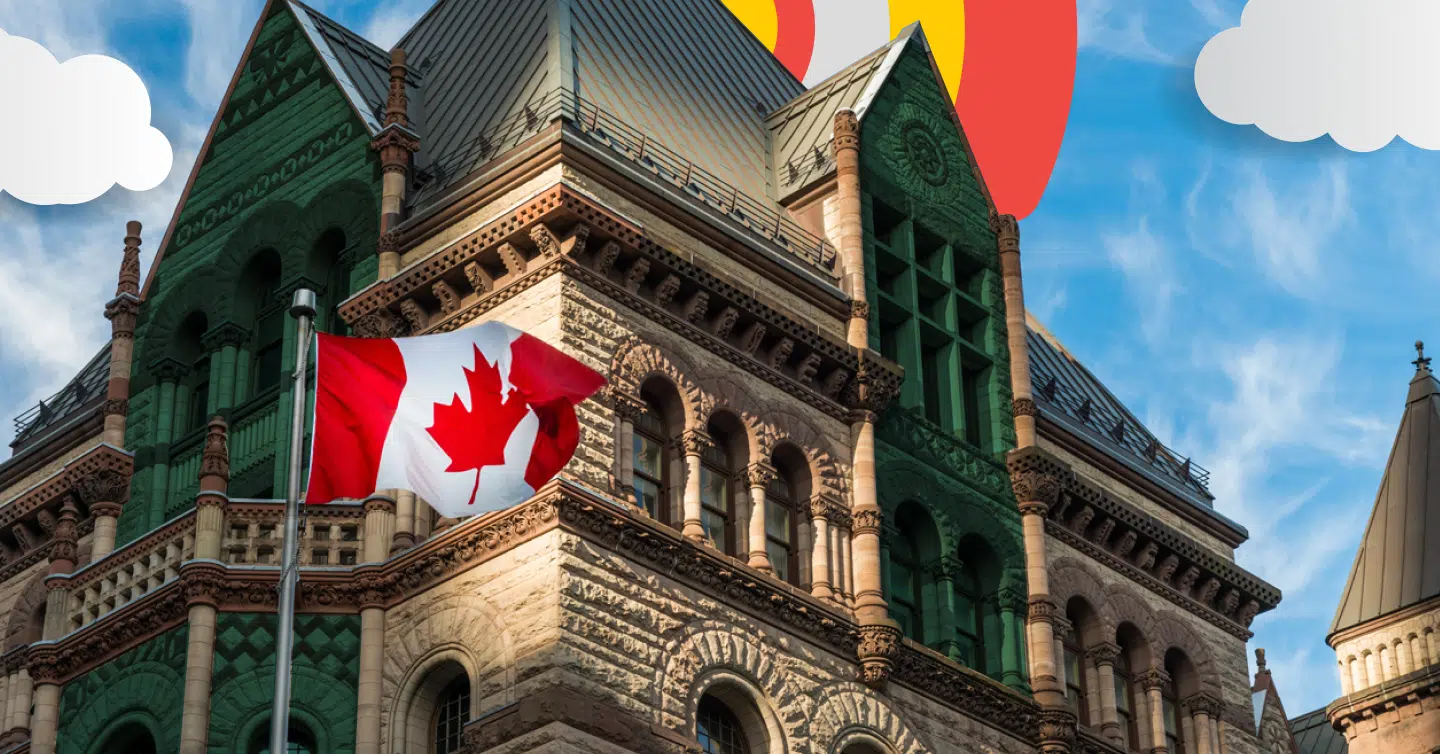Industry News #Featured articles
Industry News #Featured articles
Federal Budget 2024 Impact on Housing

Table of contents
Federal Budget 2024 Impact on Housing
Canada’s housing crisis has been a longstanding issue, made more acute by the pandemic. In its recent 2024 budget, the federal government has outlined several initiatives and funding allocations to address this crisis. To achieve its goal of building a total of 3.87 million new homes, Budget 2024 introduces fresh measures to acquire additional land for construction. In addition, the budget addresses previously disclosed actions such as extending amortization periods to 30 years for first-time buyers, extending the prohibition on foreign buyers until 2027, enforcing stricter regulations on short-term rentals, and providing an additional $400 million to a $4 billion fund that expedites construction projects. The government has also committed $15 billion in extra funding towards a program focused on constructing more rental apartment buildings and an additional $6 billion for building and repairing the necessary infrastructure to support housing development.
Current State of Housing Affordability in Canada
The housing market in Canada has been experiencing unprecedented growth, with home prices skyrocketing in major cities like Toronto and Vancouver. This surge has led to concerns about housing affordability, especially for first-time homebuyers (FTHB) and low-income families.
The federal government recognizes the urgency of this issue and has made housing a key priority in its 2024 budget, introducing several measures to improve affordability and increase the housing supply. These initiatives aim to ease the financial burden on homebuyers and ensure that every Canadian has access to safe and affordable housing.
Breakdown of Funds Allocated to Housing Initiatives
The 2024 federal budget has earmarked substantial funding for various housing initiatives. The government has pledged $52.9 billion in new spending plans, focusing on improving the affordability and availability of housing across the country.
The budget also includes a significant increase in the capital gains inclusion rate on secondary homes, rising from 50% to 66.67% for individuals disposing of their non-principal residences (such as investment properties and vacation homes) on or after June 25, 2024. The change in the capital gains inclusion rate will apply to annual gains above $250,000 for individuals and to all gains for corporations and trusts, providing an additional source of revenue for housing programs targeting Canada’s wealthiest households and real estate investors.
The proposed capital gains tax change, which would increase the inclusion rate from 50% to 66.67% for capital gains above $250,000 for individuals and on all gains realized by corporations and most types of trusts, has been deferred until January 1st, 2026. For the 2024 and 2025 tax years, capital gains will remain at 50% of all profits realized from the sale of assets.
Affordable Housing Measures
Experts consistently dismiss such measures as unproductive because they artificially inflate housing prices. The current government has pursued similar actions in the past, aiming to combat “financialization” by restricting large corporations from purchasing homes. With this budget, we will witness the extent to which the government is willing to take responsibility for constructing new housing, including specific plans for building social housing through land leases on public properties. The government has made significant strides in shifting the discourse, which should be seen as a substantial and positive intervention. Canada must prioritize construction efforts and overcome NIMBYism. Low-rise and high-rise rental apartments should be integrated everywhere, ensuring residents have security and stability for their long-term housing needs.
Canadian Renters’ Bill of Rights
One of the key measures introduced in the budget is the Canadian Renters’ Bill of Rights. This proposed legislation aims to protect renters from unfair practices, ensuring they have access to safe and affordable housing. The bill’s details are yet to be outlined, but it promises to change the rental market significantly.
The budget acknowledged the challenges younger Canadians face in securing affordable rental housing, adding that renters should be acknowledged for their rental payments. The focus is mainly on younger demographics, such as Millennials and Gen Z. The updated charter will necessitate landlords, banks, credit bureaus, and fintech firms to consider rental payment history when assessing creditworthiness.
The government’s vision includes amending the Canadian Mortgage Charter to aid renters in their transition to homeownership. The government is stepping in to help them get credit for their rental payments. A more extended credit history could pave the way for renters to become homeowners. A measure that could significantly assist renters in building credit history through timely rent payments and qualify for a mortgage sooner by securing a lower interest rate. The Renters Bill of Rights would require cooperation from landlords, banks, credit bureaus, and fintech companies to provide transparent information and establish a standard lease agreement applicable nationwide.
Rental Protection Fund
The government also unveiled the Canada Rental Protection Fund, a financial aid package worth $1.5 billion to assist tenants. The aim is to enable non-profit organizations to obtain and maintain affordable rental properties. This initiative, which aligns with recommendations from affordable housing proponents, mirrors similar actions taken in British Columbia and Ontario. While this fund is a short-term solution and holds significant value, supporting first-time homebuyers through extended mortgage amortization periods raises questions about its efficacy as a long-term policy.
In tandem with the Renters’ Bill of Rights, the federal government has also announced the creation of a Canada Rental Protection Fund. This fund is intended to provide financial assistance to renters facing difficulties, further strengthening the safety net for Canadian tenants.
Extended Mortgage Amortizations for First-time Homebuyers
A significant announcement in the budget is the extension of mortgage amortization periods for a segment of first-time homebuyers (FTHB), specifically those purchasing newly built homes. Starting August 1, 2024, FTHB who buy a new build will be allowed a 30-year amortization period on insured mortgages, up from the current 25-year limit. This essential is designed to make monthly mortgage payments more affordable, thus easing the path to homeownership for young Canadians.
RRSP Home Buyers Plan Limit Increase
The budget has also introduced a notable change to the Registered Retirement Savings Plan (RRSP) Home Buyers’ Plan (HBP). Effective April 16, 2024, FTHB can withdraw up to $60,000 from their RRSP to finance their home purchase, up from the current limit of $35,000. This measure addresses the reality that down payments and the time needed to save for them have significantly increased. The grace period to begin repayments is also temporarily extended from 2 to 5 years, giving FTHBs extra time before paying back the borrowed amount into their RRSP. This temporary and much-needed reprieve could alleviate constrained cash flow and budgets for potential and recent homeowners, avoiding a more onerous economic downturn for Canada.
Increasing Housing Supply
Budget 2024 and Canada’s Housing Plan outline the government’s ambitious approach to unlocking 3.87 million fresh residences by 2031, which includes a minimum of 2 million additional homes in addition to the projected 1.87 million homes already anticipated to be constructed by 2031. From the 2 million net new homes, we project that the measures implemented in Budget 2024, Canada’s Housing Plan, and that from the 2023 fall economic statement will facilitate at least 1.2 million net new homes. CMHC and CIBC have pegged the number much higher or doubled due to continued substantial immigration and population growth.
In terms of housing supply, Ottawa has injected $15 billion into a fund that supports the construction of apartments. Additionally, they have committed $1 billion to foster the development of new homebuilding technologies. Although this is a long-term endeavour, it has the potential to yield positive results in the future. Furthermore, the plan includes amendments to tax laws, specifically increasing the capital cost allowance (CCA) for rental apartments. While this may seem complex, it carries significant implications as it will make building rental housing much more appealing, reminiscent of the conditions half a century ago. It is essential to acknowledge that in Canada, most homes have always been provided by the private sector; solving the housing crisis necessitates the involvement of the construction industry.
The federal government has faced strong opposition from provincial leaders who view the feds’ intervention as interference. The notion that multiplexes, not just single-family homes, should be permissible in almost any location is now widely accepted in Canadian politics, representing a significant triumph. In line with this, the housing-related announcements before the budget imply a comprehensive strategy for tackling the crisis with 3 main objectives: promoting new building projects, assisting tenants—particularly those with limited incomes—and, to a lesser extent, supporting individuals purchasing their first homes.
Canada Builds
One key initiative announced in the budget to stabilize housing costs by boosting supply is Canada Builds. This initiative combines federal low-cost loans with additional investments from the provinces and territories to accelerate the construction of rental homes on underutilized lands. It aims to add millions of new homes to Canada’s housing stock by 2031.
Housing Accelerator Funding Top-up
The Housing Accelerator Fund (HAF), which aims to fast-track housing construction, has received a $400 million top-up in the budget. This additional funding is expected to expedite the nationwide construction of affordable housing units.
Canada Housing Infrastructure Fund
The budget also includes the creation of the Canada Housing Infrastructure Fund, designed to provide financial support for the construction of new homes. This fund will focus on promoting innovative building technologies and practices, aiming to increase the pace and scale of home building.
Apartment Construction Loan Program Top-up
The Apartment Construction Loan Program, which provides low-interest loans to developers and municipalities, has also received a top-up in the budget. This additional funding is aimed at encouraging the construction of more rental housing units for middle-income Canadians.
Modernising Housing Data
Preventing Mortgage Fraud
The federal government plans to consult with the mortgage industry to develop income verification tools through the Canada Revenue Agency (CRA) to prevent mortgage fraud. This measure, part of the government’s open banking initiative, aims to ensure the integrity of the mortgage application process and protect consumers from financial fraud.
StatsCan and CMHC Housing Data
The budget proposes spending $20 million for Statistics Canada and the Canada Mortgage and Housing Corporation (CMHC) to modernize and enhance the collection and dissemination of housing data. This funding will support the development of detailed municipal-level data on housing starts and completions, providing valuable insights for policymakers, developers, and homebuyers.
Fair and Open Banking
In line with its commitment to financial transparency and consumer protection, the federal government has reiterated its support for open banking in the budget. Open banking, which allows consumers to share their financial data with third parties securely, promises to bring increased competition and innovation to the banking sector, benefiting consumers with more choices and better services.
Final Thoughts
The 2024 federal budget marks a significant step forward in the Government of Canada’s commitment to addressing the country’s housing crisis. The proposed measures are geared towards making homeownership more accessible for Canadians. Measures such as extending insured mortgage amortizations to 30 years for a subset of buyers and the RRSP HBP limit will have benefits and drawbacks that will be realized over time. At the same time, the government’s initiatives to improve the housing supply, such as ‘Canada Builds’ and the Housing Accelerator Fund top-up, aim to alleviate the housing shortage.
While these measures are promising, their success will hinge on practical implementation and ongoing commitment from all levels of government. As Canada navigates its way out of the pandemic, the need for safe and affordable housing remains more critical than ever. The 2024 budget offers a comprehensive roadmap towards that goal, paving the way for a more inclusive and sustainable housing market.
Ready to get started?
In just a few clicks, you can see our current rates. Then apply for your mortgage online in minutes!















